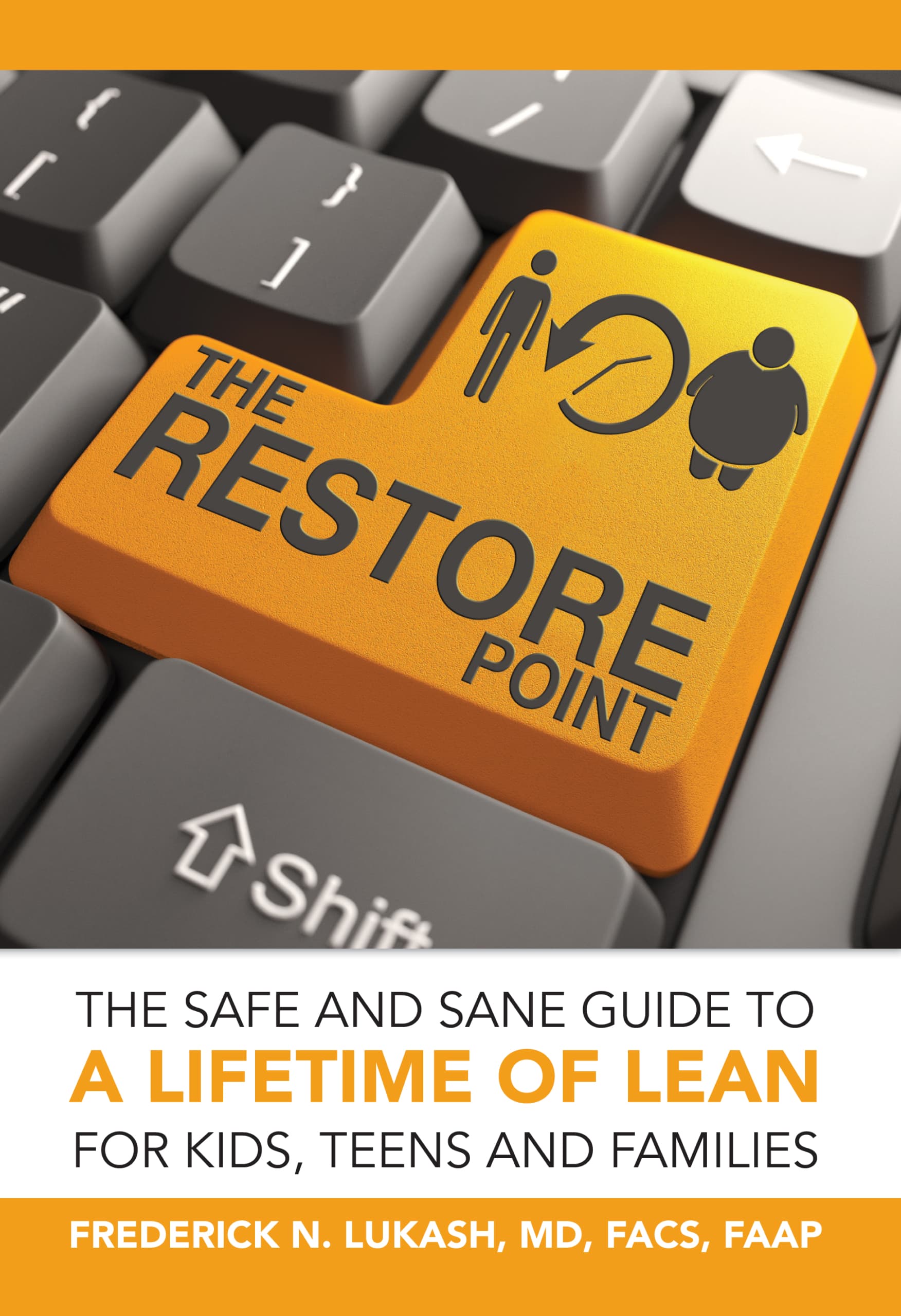
by Dr. Frederick N. Lukash, MD, FACS, FAAP
People talk about summer as being the “take off” season. You “take off” your heavy winter clothes, revealing a (hopefully) fit body ready for the outdoor pleasures of warm weather, sports and sun.
But for kids and families dealing with childhood obesity, that happy “big reveal” can be traumatic.
As I explain in my new book, The Restore Point: The Safe and Sane Guide to A Lifetime of Lean for Kids, Teens and Families (Archway, 2015), warm sports-centric weather often reveals secret eating or weight distress issues for kids and teens. Your daughter doesn’t want to go to the prom wearing a strapless dress because her arms are heavy. Your son can’t play a game of “shirts and skins” or go to the beach comfortably because he isn’t confident about his body in a bathing suit.
As clothes come off and the weather heats up, parents also have the opportunity to see their children more often as school is out and kids are home. This is an opportune moment to discover whether or not your child is having food or weight issues. Body shame is never acceptable, no matter what size or shape your child is in. If your child or teen is actually having a problem with his or her weight and with food, summer is a prime time to deal with the issue.
Some signs that point to the fact that your child may be having a growing weight and/or food issue:
1. He or she is particularly anxious about going to the beach in revealing swimwear.
2. He or she is inactive, spending much of his or her vacation time in the house on the couch or in their room instead of being outdoors or with friends.
3. You notice erratic eating patterns: heavy snacking and then loss of hunger at dinner time may mean your child is not managing food at optimal, healthy levels. They may be relying on food for emotional comfort or eating in secret.
4. Your child’s clothing preferences have changed: maybe they are uninterested in new clothes or are wearing increasingly loose and shapeless garments. Incremental weight gain can be concealed for a time beneath clothes, but summer-thin clothing will reveal changes — if they are occurring — more than winter coats and sweaters.
If you feel that your child is becoming anxious around food or body issues and if you feel that weight is becoming a problem, what should you do? Many parents feel that a “talk” will embarrass their child or that it won’t do any good.
Here are some pointers:
Deliberately change your family food profile. Cut out the bread, pasta, pizza and desert menu. Eliminate sugary drinks (including Gatorade–water is the best hydration). If your child complains, sit down and ask him or her about their relationship to the food you are serving now versus the more fattening items you were formerly serving. If it seems that your child has an emotional reliance on sweets and carbohydrates–this is an issue that you need to address now.
Take your child clothes shopping. Without being judgmental, take note of their anxieties around revealing their physique. Tell them that you understand their feelings and that the family, as a whole, will be getting fitter and healthier together (so they won’t feel singled out or shamed).
Take your child with you to the supermarket when you shop. Learn about healthy food options together and let them choose which fruits, vegetables or lean proteins they would prefer to explore. Give them options and a feeling of control around their meals.
Choose vacation options that promote physical activity. Go to an action park where kids can jump, climb or explore rather than just sit in rides. Plan a family vacation at one of America’s amazing National Parks where outdoor activities are the focus and kids realize how pleasurable it is to be active out in nature. If your child or teen needs remedial fitness, summer is a great time to get them up to speed before gym class starts again. My book, The Restore Point, has an easy and inexpensive program for getting kids up-to-speed on their physical fitness.
Take advantage of the summer months to get closer to your kids and to communicate to them and to your partner the importance of food management and physical fitness and you’ll all enjoy a healthy, happy and restorative vacation season together.
If you have questions or thoughts about losing weight safely for kids and teens or other issues, email us at blogs@lipsg.com. Dr. Lukash would be happy to respond here on this blog!

